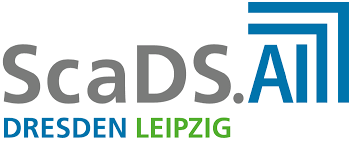Duration
Description
Model Management is a powerful approach to generic metadata management that manipulates models and mappings between models using high-level operators. It aims at simplifying the development of metadata-intensive applications, such as data integration, software engineering, website management, or network modeling applications. Such applications manipulate a variety of
- models (database schemas, XML schemas, UML / ER)diagrams, ontologies, etc.) and
- mappings between models (SQL view definitions, XSLT transformations, XML-to-relational shredding specifications, ER-to-SQL DDL mappings, etc.).
Model Management is a powerful approach to generic metadata management not limited to a specific language or application domain. Models and mappings are manipulated using high-level algebraic operators, such as Match, Merge, or Compose. These operators are applied to models and mappings as a whole rather than to their individual building blocks. This approach, which was proposed by Phil Bernstein et al., promises to make the programming of metadata-intensive applications substantially easier.
Some of our key contributions are:
- Study of scenarios related to data warehousing to demonstrate the usefulness of model management (ER 2000)
- Development of the first prototype implementation of a complete programming environment for model- management, called Rondo, and its use to solve several realistic metadata problems (SIGMOD 2003). An executable demo of Rondo is available for download.
Related Panel:
Bernstein, P.A., Is Generic Data Management Feasible? Panel discussion, Proc. VLDB 2000, pp. 660-662
Project members
Publikationen (22)
| Dateien | Cover | Beschreibung | Jahr |
|---|---|---|---|

|
2003 | ||

|
2003 | ||

|
2003 | ||

|
2002 | ||

|
2002 | ||

|
Melnik, S.
; Garcia-Molina, H.
; Rahm, E.
Proc. 18th International Conference on Data Engineering (ICDE), San Jose, 2002
|
2002 | |

|
Melnik, S.
Doctoral Poster, VLDB conf. 2002, Hongkong, Aug. 2002
|
2002 | |

|
2001 | ||

|
2001 | ||

|
Bernstein, P.
; Rahm, E.
Proc. 19th Int. Conf. on Entity-Relationship Modelling, Oct. 2000, LNCS, Springer
|
2000 |


